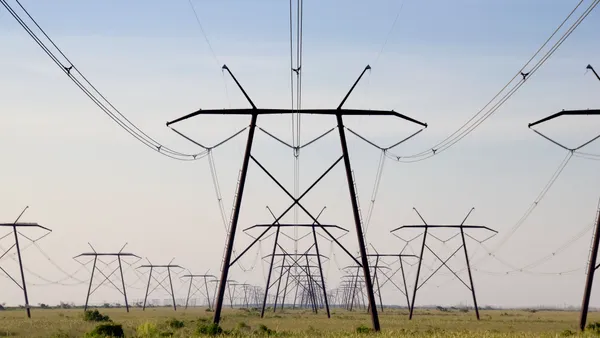Dive Brief:
- The Michigan Public Service Commission is planning a stakeholder conference this summer to tackle issues regarding electric vehicle charging infrastructure, after it rejected a proposal by Consumers Energy earlier this year.
- In February, Consumers withdrew its proposal to install 800 electric vehicle charging ports in its Michigan service territory. The commission expressed concern that the $15 million program could raise costs for private companies, keeping them out of the market.
- Mlive.com reports the proposal is not entirely dead, and the PSC is looking to draw together a wide range of stakeholders. Consumers' EV charging proposal was a part of a rate increase the commission partially approved.
Dive Insight:
Consumers Energy could have gone ahead with the EV charging proposal, but it would have had to do so without a clear path for cost recovery — a sticking point for any utility.
Instead, this summer a range of parties will put their heads together in hopes of developing a charging infrastructure proposal that works for both the utility and the private market.
PSC spokesperson Judy Palnau told Mlive.com, "as the 'car state,' you don't want state government being part of the problem when it comes to promoting vehicles. ... by bringing together all of the different stakeholders, perhaps a proposal can result that a lot of people like and that the utility likes."
The utility's EV plan had some support, including from environmental groups and General Motors. But charging equipment manufacturer ChargePoint protested, arguing in testimony that the plan "could slow rather than accelerate adoption of EVs in the near and long term in Michigan.”
Consumers' proposal called for 60 fast charging DC stations along major highways in the Lower Peninsula and 750, 240-volt AC stations in metropolitan areas. Energy from the AC stations would have been paid for by the station host and business owner, with installation costs going into the utility ratebase.
Regulators, in their February decision, approved a $113 million increase to electric rates, lower than the $225 million requested.













